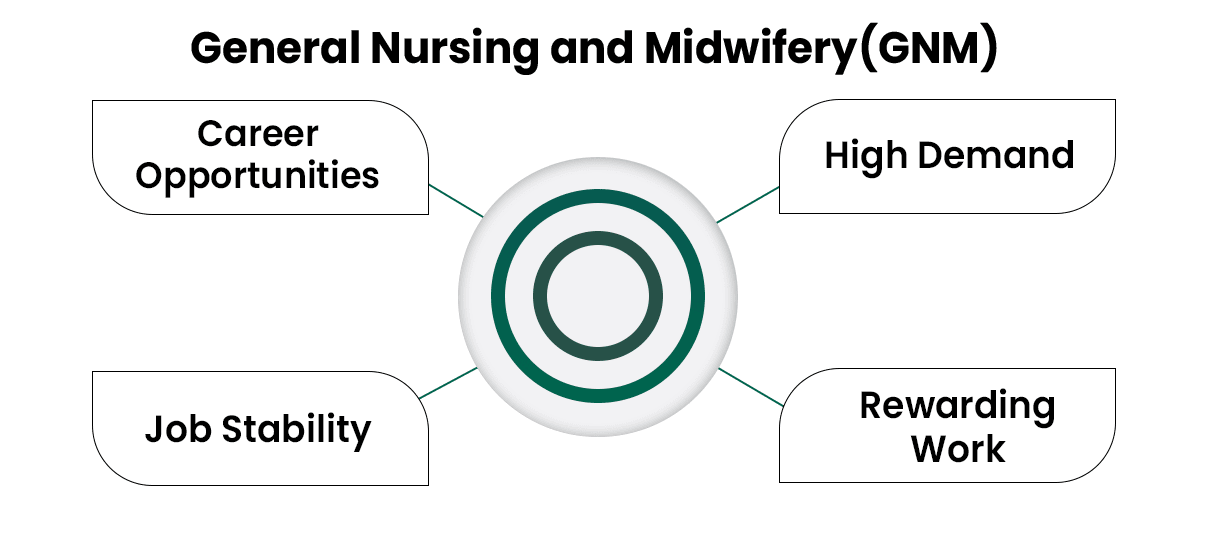Embark on a rewarding career journey with our comprehensive BSc Nursing program. Discover course details, fees, syllabus, and admission information for 2025. Join us today and step into a fulfilling healthcare profession!
Nursing is one of the most respected and rewarding professions in the healthcare sector, providing essential care to patients while contributing to improving the overall health of society. If you're interested in pursuing a career in nursing, a Bachelor of Science in Nursing (BSc Nursing) is one of the most popular and sought-after degrees. This course equips students with the knowledge, skills, and training required to become professional nurses and healthcare providers.
With increasing demand for healthcare professionals globally, BSc Nursing offers great career prospects, including roles in hospitals, clinics, research institutions, and even teaching. If you are considering pursuing BSc Nursing in 2025, this blog will provide an overview of the BSc nursing course details of the course, fees, syllabus, and admission process.
What is BSc Nursing?
BSc Nursing is an undergraduate program designed to train students to become skilled nurses capable of providing high-quality care in various healthcare settings. The bsc nursing course typically lasts for four years and is offered by numerous universities and nursing colleges across the country. Students are taught both theoretical knowledge and practical skills, which are necessary for assessing, diagnosing, and treating patients effectively.
The course covers various aspects of nursing, such as medical-surgical nursing, community health nursing, pediatric nursing, and mental health nursing. In addition to the clinical aspects, the curriculum also includes subjects related to anatomy, physiology, pharmacology, and psychology.
Course Structure and Syllabus
The syllabus of BSc Nursing is designed to cover a broad spectrum of topics that prepare students to handle various nursing challenges. Below is a breakdown of the bsc nursing course subjects typically covered over the four years of the program:
First Year:
- Anatomy and Physiology - Study of the human body, its structures, and functions.
- Biochemistry and Microbiology - Understanding biochemical processes and microorganisms relevant to health.
- Nursing Foundation - Introduction to the fundamentals of nursing, including healthcare delivery systems.
- Psychology - Study of human behavior and mental health.
- Sociology - Understanding the role of social factors in healthcare and patient care.
Second Year:
- Medical-Surgical Nursing - In-depth study of common diseases and their nursing management.
- Pharmacology - Study of drugs and their effects on the body.
- Nutrition and Dietetics - Importance of nutrition in maintaining health and recovery.
- Nursing Management - Focus on the organization and administration of nursing services.
- Community Health Nursing - Providing nursing care in community settings and addressing public health issues.
Third Year:
- Pediatric Nursing - Nursing care for children and understanding childhood diseases.
- Mental Health Nursing - Focus on caring for patients with mental health conditions.
- Obstetrics and Gynecology Nursing - Nursing care during pregnancy, childbirth, and postpartum care.
- Medical-Surgical Nursing II - Advanced medical-surgical nursing skills.
Fourth Year:
- Nursing Research and Statistics - Introduction to research methods in nursing.
- Management and Leadership in Nursing - Exploring leadership roles in nursing and healthcare settings.
- Internship/Practical Training - Real-world exposure through clinical training in hospitals or healthcare settings.
Eligibility Criteria for BSc Nursing Admission
The eligibility criteria for admission to BSc Nursing may vary slightly depending on the institution, but the following are general requirements. BSc nursing course duration is 4 years.
- Educational Qualifications: The candidate must have passed 10+2 or equivalent examinations with a minimum of 50% marks in Physics, Chemistry, Biology, and English.
- Age Limit: Candidates must typically be between 17 and 35 years of age at the time of admission.
- Entrance Exam: Many universities and colleges require candidates to clear an entrance exam to secure admission to BSc Nursing. These exams assess the candidate’s knowledge in subjects like Biology, Physics, Chemistry, and General Knowledge.
- Physical Fitness: Since nursing involves long hours of work and physical labor, candidates are often required to submit a certificate of physical fitness.
Admission Process for BSc Nursing 2025
The admission process for BSc Nursing in 2025 will follow a similar pattern as previous years, but it's important to keep an eye on any changes announced by the respective institutions. Here’s a step-by-step breakdown of the typical admission process:
- Application Form: Candidates need to fill out the application form available on the official websites of universities or nursing colleges. Forms are typically available in the months of April to June.
- Entrance Exam: After submitting the application, candidates may have to appear for an entrance exam. Some popular entrance exams for BSc Nursing include:
- AIIMS Nursing Exam
- JIPMER Nursing Entrance Exam
- State Nursing Entrance Exams
- University-Specific Exams
- Result Declaration: Results of the entrance exams are usually declared within a month of the exam. The merit list is published based on marks obtained in the exam.
- Counseling: Qualified candidates are invited for counseling, where they can choose their preferred college or university based on availability and merit.
- Document Verification: Candidates must submit documents such as mark sheets, age proof, category certificates (if applicable), and other required documents during the verification process.
- Admission Confirmation: Once all the formalities are complete, candidates can secure their admission by paying the required fee.
BSc Nursing Fees
The BSc nursing course fees can vary significantly depending on the institution, location, and whether it is a government or private college. On average, the fee structure ranges as follows:
- Government Colleges: INR 20,000 – INR 1,00,000 per year
- Private Colleges: INR 50,000 – INR 2,00,000 per year
Some prestigious institutions or universities may have higher fees, while government colleges often offer more affordable options. It is important to note that additional expenses such as hostel fees, exam fees, and clinical training fees may also be incurred.
Career Opportunities After BSc Nursing
After completing a BSc Nursing degree, graduates can pursue a variety of career paths in both the public and private sectors. Some of the common job roles include:
- Staff Nurse: Working in hospitals, clinics, and other healthcare settings to provide patient care.
- Nursing Educator: Teaching at nursing colleges and universities.
- Clinical Nurse Specialist: Specializing in specific areas of nursing such as pediatric care, oncology, or cardiology.
- Public Health Nurse: Working in public health departments to educate communities about healthcare and prevention.
- Research Nurse: Participating in clinical research and studies to improve healthcare practices.
- Healthcare Administrator: Managing nursing departments and healthcare facilities.
- Nurse Practitioner: An advanced practice role where nurses diagnose and treat certain medical conditions.
With a BSc Nursing degree, there are also opportunities to pursue higher education such as a Master of Science in Nursing (MSc Nursing) or other specialized certifications, enhancing job prospects and career growth.
Conclusion
BSc Nursing is a highly respected and essential degree program that opens up multiple career paths in the healthcare sector. By gaining the right education, training, and experience, graduates can make a significant difference in people’s lives while enjoying job stability and growth. If you are considering BSc Nursing in 2025, make sure to check the admission process, eligibility criteria, and fee structures of various institutions. A career in nursing is not only financially rewarding but also immensely fulfilling, as you contribute to the well-being of others.








